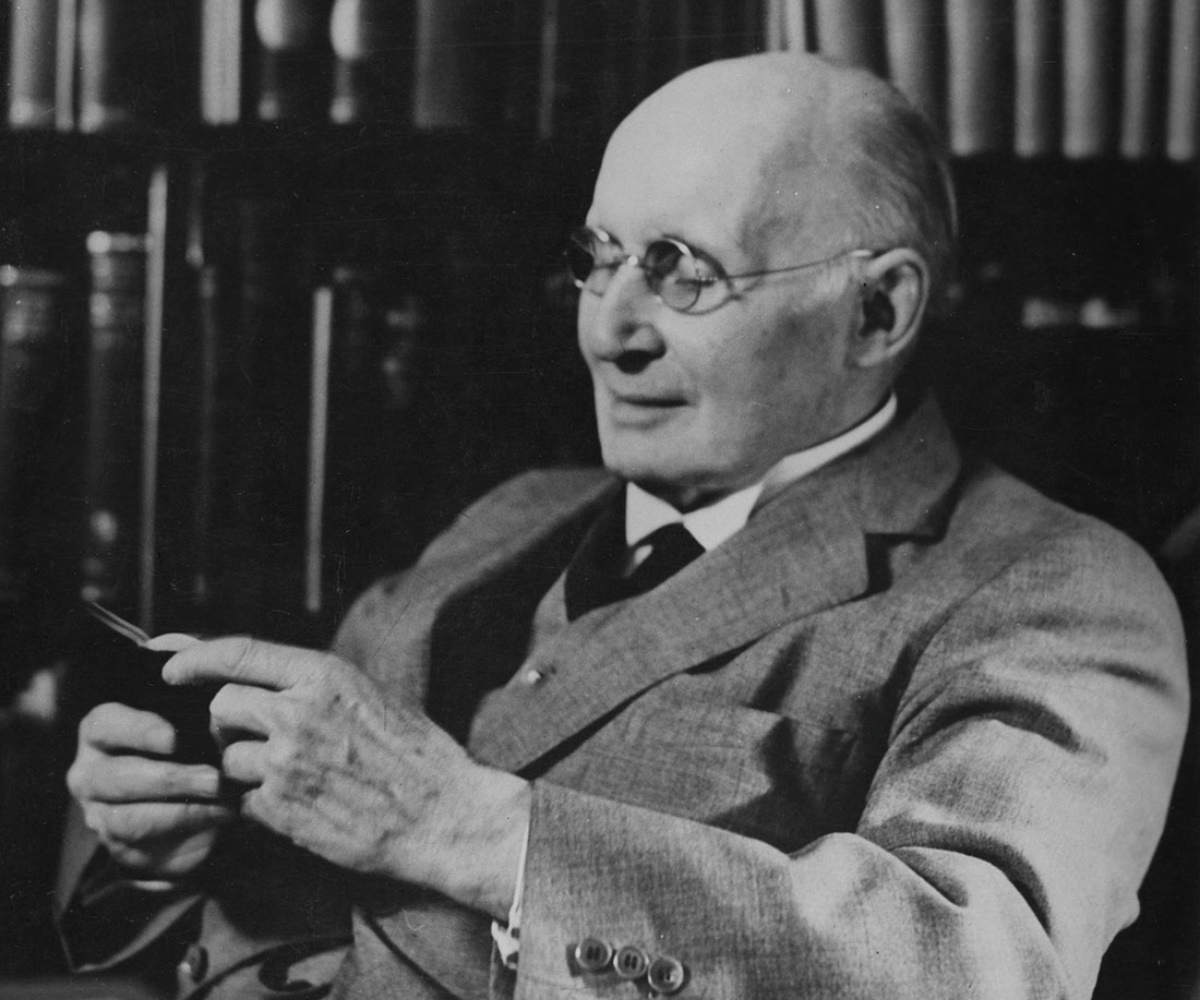
Alfred North Whitehead, a renowned mathematician and philosopher, left behind a remarkable legacy that continues to captivate scholars and thinkers to this day. His contributions to various fields, including mathematics, logic, metaphysics, and education, have had a profound impact on our understanding of the world and our place in it. In this article, we will delve into the life and work of Alfred North Whitehead, exploring 19 astonishing facts that shed light on his brilliance and intellectual prowess. From his groundbreaking collaboration with Bertrand Russell to his role as an influential educator, Whitehead’s ideas continue to shape our understanding of the universe and the nature of human experience. Prepare to be amazed by the fascinating journey through the life of one of history’s most extraordinary thinkers.
Key Takeaways:
- Alfred North Whitehead was a brilliant mathematician and philosopher who revolutionized our understanding of reality, time, and causality through his process philosophy and groundbreaking work in logic and education.
- His ideas continue to inspire scholars and students, influencing fields such as environmental ethics, philosophy of mind, and postmodern thought. Whitehead’s concepts of interconnectedness and creativity provide valuable insights for addressing contemporary challenges.
A Pioneer of Process Philosophy
Alfred North Whitehead was an eminent mathematician and philosopher, known for his groundbreaking work in process philosophy. His ideas revolutionized our understanding of the nature of reality, time, and causality.
Co-authored the Principia Mathematica
In collaboration with his colleague Bertrand Russell, Whitehead co-authored the monumental work Principia Mathematica. Published between 1910 and 1913, this three-volume treatise aimed to establish a rigorous foundation for mathematics.
Scholarly Contributions to Logic
Whitehead made significant contributions to the field of logic, particularly in the area of symbolic logic. His work laid the groundwork for advancements in logical theory and the application of logical methods in various disciplines.
Impact on Education
Whitehead’s philosophy of education has had a profound influence on the field. He emphasized the importance of experiential learning, encouraging educators to focus on the process of learning rather than just the accumulation of knowledge.
Philosopher of Science
Whitehead’s philosophical ideas also extended to the realm of science. He explored the relationship between science and metaphysics, emphasizing the importance of integrating empirical observations with broader philosophical frameworks.
The Concept of “Actual Entities”
Whitehead’s concept of “actual entities” forms the basis of his metaphysical system. He proposed that everything in the universe, from particles to complex organisms, can be understood as individual entities with their own unique experiences and agency.
Collaboration with Einstein
Whitehead collaborated with Albert Einstein on the formulation of the theory of general relativity. Although their collaboration did not lead to direct breakthroughs, it demonstrated Whitehead’s interest in bridging the gap between philosophy and physics.
Influence on Philosophy of Mind
Whitehead’s ideas have had a significant impact on the field of philosophy of mind. His process philosophy provides a unique perspective on consciousness, perception, and the nature of mental phenomena.
Notable Works
In addition to Principia Mathematica, Whitehead’s notable works include “Process and Reality,” “Science and the Modern World,” and “Adventures of Ideas.” These texts explore his philosophical ideas in depth.
Influence on Environmental Ethics
Whitehead’s emphasis on interconnectedness and the intrinsic value of all entities has had an influence on environmental ethics. His work encourages a holistic approach to environmental issues, emphasizing our ethical responsibility towards the planet.
Held Academic Positions
Throughout his career, Whitehead held various academic positions, including a fellowship at Trinity College, University of Cambridge, and a professorship at Harvard University. His intellectual pursuits and teachings continue to inspire scholars and students to this day.
Legacy in Mathematics
Whitehead’s contributions to mathematics extend beyond his collaboration with Russell. His work in algebraic logic, differential equations, and the foundations of mathematics has had a lasting impact on the field.
The Whitehead Institute
In recognition of his contributions to science and philosophy, the Whitehead Institute for Biomedical Research was established in This renowned research institute focuses on cutting-edge biomedical research and interdisciplinary collaboration.
Criticism of Materialism
Whitehead critiqued the prevailing philosophical perspective of materialism, arguing that it failed to account for the richness and complexity of human experiences. He advocated for a more holistic view that encompasses both physical and mental aspects of reality.
Influence on Theology
Whitehead’s philosophy has also had an impact on theology, particularly in the area of process theology. Process theologians propose that God is constantly evolving and interacting with the world, reflecting Whitehead’s ideas of dynamic and evolving entities.
Honors and Recognitions
Whitehead received numerous honors and recognitions during his lifetime, including being elected a Fellow of the British Academy and serving as President of the Aristotelian Society. His contributions to philosophy and mathematics continue to be celebrated today.
Bridge between Analytic and Continental Philosophy
Whitehead’s philosophical ideas have had a bridging effect between analytic and continental philosophy, appealing to scholars from both traditions. His holistic and process-oriented approach invites interdisciplinary dialogue and collaboration.
Influence on Postmodern Thought
Whitehead’s concepts of relationality, interdependence, and creativity have resonated with postmodern thinkers. His ideas have been incorporated into various postmodern philosophical frameworks, contributing to the ongoing development of postmodern thought.
The Continuing Relevance of Whitehead’s Ideas
Whitehead’s philosophical ideas have continued to inspire and influence scholars across various disciplines. His concepts of process, creativity, and interconnectedness provide valuable insights for addressing contemporary intellectual and societal challenges.
Conclusion
In conclusion, Alfred North Whitehead was an extraordinary thinker and scholar who made significant contributions to the fields of mathematics, philosophy, and education. His work in process philosophy and his collaboration with Bertrand Russell in developing the Principia Mathematica are just a few examples of his intellectual prowess.Whitehead’s ideas continue to influence and inspire scholars and researchers to this day. His holistic approach to understanding reality, his emphasis on creativity and novelty, and his belief in the interconnectedness of all things have had a profound impact on various disciplines.Whether it was his groundbreaking work in mathematics, his philosophical explorations, or his innovative ideas in education, Alfred North Whitehead left an indelible mark on the intellectual landscape. His unique perspective and deep insights continue to stimulate thought and encourage further investigation into the nature of reality and the human experience.
FAQs
1. What are some of Alfred North Whitehead’s notable contributions?
Alfred North Whitehead made significant contributions to mathematics, philosophy, and education. He is best known for his work in process philosophy and his collaboration with Bertrand Russell on the Principia Mathematica.
2. What is process philosophy?
Process philosophy is a philosophical framework that emphasizes the dynamic and interconnected nature of reality. It focuses on the process of becoming and the continuous flux of events, rather than fixed and static entities.
3. How did Alfred North Whitehead influence education?
Whitehead believed in providing a holistic education that emphasizes creativity, critical thinking, and the integration of knowledge across disciplines. He advocated for a curriculum that allows students to explore their own interests and develop a deep understanding of the world.
4. Are Alfred North Whitehead’s ideas still relevant today?
Absolutely. Whitehead’s ideas continue to resonate with scholars in various fields. His emphasis on the interconnectedness of all things, his understanding of creativity and novelty, and his holistic approach to understanding reality offer valuable insights that can be applied to contemporary challenges and questions.
5. How can I learn more about Alfred North Whitehead?
There are numerous books and articles written about Alfred North Whitehead’s life and work. Some recommended readings include “Process and Reality,” “Science and the Modern World,” and “Adventures in Ideas.”
Alfred North Whitehead's contributions to philosophy, mathematics, and logic have left an indelible mark on intellectual history. His ideas continue to inspire and challenge thinkers across various disciplines. Readers interested in exploring more fascinating figures and topics might enjoy delving into the wisdom of Epictetus' philosophy, unraveling the mysteries of mathematics, or discovering the groundbreaking insights of Charles Peirce's pragmatism.
Was this page helpful?
Our commitment to delivering trustworthy and engaging content is at the heart of what we do. Each fact on our site is contributed by real users like you, bringing a wealth of diverse insights and information. To ensure the highest standards of accuracy and reliability, our dedicated editors meticulously review each submission. This process guarantees that the facts we share are not only fascinating but also credible. Trust in our commitment to quality and authenticity as you explore and learn with us.


